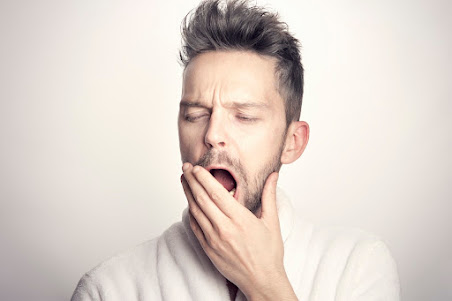Low-T symptoms most men ignore in their 40s
September 8, 2025

The Sneaky Signs of Low-T: What Men in Their 40s Need to Know

It’s inevitable for most guys that as time moves on, we start to feel the effects of aging. Men in their 40s often navigate a whirlwind of career demands, family responsibilities, and social engagements that start to take their toll. In this stressful and busy stage of life, subtle shifts in a guy’s health and well-being can easily be dismissed as simply "getting older" or the result of stress. However, some of these seemingly minor changes could be indicative of a significant underlying issue: low testosterone, often referred to as "Low-T." Recognizing the symptoms of Low-T is crucial, as ignoring them can negatively impact various aspects of a man's health and quality of life. At NovaGenix, a leading health and wellness center in Jupiter, Florida, we believe in empowering men to take proactive steps towards their health. This article will shed light on some of the most commonly overlooked Low-T symptoms in men during their 40s.

One of earliest signs of a hormone imbalance that starts to effect men and is often most disregarded, is persistent fatigue. While everyone experiences tiredness after a long day, the fatigue associated with Low-T is often more profound and doesn't improve with adequate rest. Men might find themselves feeling drained even after a full night's sleep, experiencing a lack of energy that interferes with their daily activities. You get home from work and just sink into the couch or lay down to rest your eyes for just a minute and pass out. You kids want to play but you need a cup of coffee first before you can be dad and take them out to play with them. This isn't just regular tiredness; it's a pervasive lack of vitality that can impact motivation and productivity. It’s more common than you think.

Another subtle symptom many men attribute to stress or aging is decreased libido and erectile dysfunction. Changes in sexual desire and performance can be emotionally challenging, leading many to avoid discussing them. It often leads to martial issues. It's not just about physical connection, but also about the emotional closeness, trust, and vulnerability that couples share. When intimacy wanes, a marriage can begin to suffer in a number of significant ways, leading to feelings of loneliness, resentment, and a breakdown in communication. It’s difficult for a husband to explain to his wife why these issues exist as it’s often either embarrassing or they don’t understand the reason behind their decreased sex drive. Testosterone plays a vital role in sexual function, and a decline in its levels can directly contribute to reduced interest in sex and difficulties achieving or maintaining an erection. Ignoring these changes can not only affect intimacy but also signal a broader hormonal imbalance.
Changes in mood and cognitive function are also frequently overlooked. People just brush it off as stress from work of life. Men with Low-T may experience increased irritability, anxiety, and even symptoms of depression. They might also notice difficulties with concentration, memory, and overall mental sharpness. These changes can be mistakenly attributed to work stress or other life pressures, delaying the recognition of a potential hormonal cause. It turns out that when testosterone levels are optimized, men tend to feel better, are more energized and hence FEEL better as well. This tends to have a positive effect on multiple aspects of a mans life.

Physical changes, though sometimes more noticeable, can still be dismissed as part of the natural aging process. Reduced muscle mass and increased body fat, particularly around the abdomen, can be linked to lower testosterone levels. We all remember seeing pictures of our dads when they were young and fit, and then as time goes on, many of these guys start to put on a little belly fat and we just assume that’s a normal part of life. But it doesn’t have to be. Men might find it harder to build or maintain muscle even with consistent exercise, and stubborn belly fat may become more prevalent but testosterone can help fix that problem. Similarly, a decrease in bone density, although often asymptomatic initially, can increase the risk of fractures over time and is another potential consequence of Low-T. It’s quite common to hear stories about older men who fell and broke a hip. As men get older and testosterone levels drop, so does bone density.
Finally, seemingly minor symptoms like sleep disturbances and decreased body hair can also be indicative of lower testosterone levels. Changes in sleep patterns, such as insomnia or difficulty staying asleep, can be linked to hormonal fluctuations. A gradual thinning of facial or body hair might also be a subtle sign that testosterone levels are declining.

It's important to remember that these symptoms can have various underlying causes so it’s important to seek the advice from you physician to determine what may be the actual cause of any symptoms you may be experiencing. However, if you're a man in your 40s experiencing several of these seemingly unrelated changes, it's worth considering the possibility of Low-T. Ignoring these symptoms could delay necessary treatment and allow the negative effects of low testosterone to persist and potentially worsen.

At NovaGenix in Jupiter, Florida, we offer comprehensive testing and personalized treatment plans to help men address Low-T and reclaim their vitality. Our experienced medical professionals and physician Dr. Timothy Mackey understand the nuances of hormonal health and can provide accurate diagnosis and effective management strategies. If you're experiencing any of the symptoms mentioned above, we encourage you to schedule a consultation. Taking proactive steps towards your health in your 40s can significantly impact your well-being and quality of life for years to come. Don't dismiss these subtle signs – your health is worth prioritizing.

Contact Us
Blood Work Request Form

609 N Hepburn avenue suite 106. Jupiter, Florida 33458
609 N Hepburn avenue suite 106. Jupiter, Florida 33458
561-277-8260
.png)
.png)
.png)
.png)
Schedule a Consultation
Learn what you want to know about hormone therapy by scheduling a free consultation.
Contact Us Today609 N Hepburn avenue suite 106. Jupiter, Florida 33458
Monday - Friday: 9:00 am - 5:00 pm | Saturday-Sunday: Closed

.png)